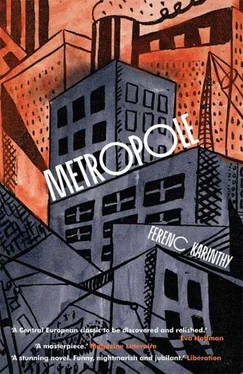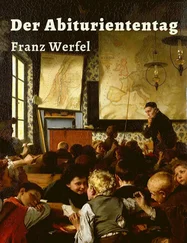As he stared at the hotel from the street it seemed to him a lost paradise from which he had been banished. He regarded it with the most intense nostalgia but was almost incapable of conjuring up any part of it or even imagining that he once had his own room, his own made-up bed, his own writing table, bathroom, basin and shower. And that Edede was there each day… Was she still riding the lift up and down, pushing the buttons? If the authorities had discovered their relationship, as he feared they had, and it was regarded as a capital crime, it would be the same for her as for him; their vengeance would seek her out too and it was pointless looking for her. On the other hand, he admitted to himself, he would be ashamed to be seen by her in his current state.
His capacity for action had drained away, his mind was dry and barren and he had little appetite left for renewing his battle of wits with that lump of lard. He hung around the entrance for a while longer but nothing changed, no new stratagem or scheme occurred to him. For a few moments he wasn’t even sure whether he wanted to enter at all. Some time later, without having made a decision as such, he set off back towards the metro station. The skyscraper on the building had grown another two floors since he last passed that way: it had reached floor seventy-seven.
He was familiar by now with the faces of some of the market labourers though he had no desire to make their acquaintance. Since there was a fairly rapid turnover of workers there were always new faces at the loading area and it was noticeable how many of them were coloured, more here than elsewhere. Those who, like him, had no accommodation tended to seek out any available place in the market come dusk, on bales, on heaps of coal or next to the wall, generally drunk. Every so often a policeman would stroll over the ramp, moving on those he spotted, though no-one discovered Budai’s hiding place. Once the policemen had gone those he had disturbed returned to their places and lay down again.
Having finished work Budai too took to the bar in the next street. He made a firm decision to get used to it. It was part of his current way of life, after all, much more so than a clean shirt. Where was he to wash a shirt? His lack of resources also had him choosing between clean underwear and getting drunk, and it was in perfectly sober mood, after considerable thought, that he opted for the latter. His situation would have been simply intolerable without alcohol.
The bar was normally solid with customers and served no more that two or three different kinds of drink. He was unable to discern a significant difference between even these: they all approximated to the syrupy-sickly liquid you could buy anywhere and which, in his estimation, was pretty high in alcohol content. The dirty, stuffy, loud, smoke-filled room was patronised mostly by market employees, casual porters and the like, lowlifes and underworld types as well as a few tired, sluttish women of dubious appearance. The patrons would lean on the bar for hours on end, glass in hand, engaged in long debates that, Budai suspected, were conducted in mutually incomprehensible languages, so that, like all drunks, they simply held forth notwithstanding. Occasionally the conversation would grow heated and suddenly an argument would break out, reaching a pitch of fury that sometimes resulted in a fight. When this happened the barman, a powerfully built, bald black man in a green apron, would usher the troublemakers out through the door or sometimes physically throw them out.
Budai was kept amused by little things there. It was how he filled his time. He drank until his money ran out or until he felt woozy and had lost all sensation to the point of collapse but still had just enough alertness left to stumble back to his shelter where he was overcome by sleep. He would wake next morning with a bad headache, a foul taste in his mouth and a burning sensation in his stomach but that wouldn’t stop him returning the next evening.
His nerves though were being worn to tatters. He was constantly tense, charged with a nervous electric energy. Passing this or that figure in the street, it didn’t matter who, it would only take an irritating gesture or an annoying face and he would suddenly be overcome by a terrible blind fury. The sober part of his mind would know the fury to be perfectly unreasonable but he still could not resist: everything went dark and he cursed and swore at the person. He would imagine hitting or kicking him and using his face as a punch-bag. Once he was gazing at a good-looking slender creole boy dressed in a slightly over-elegant fashion with a bracelet and a chain around his neck. He was chewing gum to judge by the rhythmic movements of his jaw. The sight of his blazer, of his delicate fingers absent-mindedly plucking at his lips, filled him with such indignation he wanted to smash his fist into the boy’s face and beat him to death and would have done so had he not feared the consequences. For days after that he felt ill just recalling the moment.
It was the old, the ailing, the feeble that particularly irritated him. It was wrong and unfair as he well knew but he couldn’t help himself. On one occasion he found someone had taken his spot behind the crates. It was a puny, graceless figure who was asleep there. The fellow’s hair was grey, his face had fallen in, he was hardly bigger than a child. His blue canvas trousers had patches on them. Budai was seized with a terrible anger. The blood rushed to his head and he dragged the tiny unresisting figure to his feet and tossed him aside… Later, in a fit of conscience, he looked for him everywhere, hoping to earn some forgiveness by buying him a drink but there was no trace of him. Like so many others that he had met in the city, he simply disappeared.
Wherever he wandered in town — and now he was deliberately crossing roads against the lights — he strewed rubbish, trod over floral borders and generally sought to break as many rules as he could. He had convinced himself that such rules had nothing to do with him, that he did not belong here, that he was simply a foreigner, an alien. If someone pushed him in the crowd, as often happened, of course, he craftily kicked the person back, or hit him with his fists, or if he lacked the opportunity to do that immediately, kept following the guilty party until he caught up with him and was able to exact full revenge by beating, slapping, punching and tearing at him. When he passed an empty telephone box he would enter, tear off the receiver and crush it under his heel. He would kick over the rubbish bins people had put out in front of their houses and enjoy seeing the rubbish spill out. He would throw stones at windows at night and smash streetlights.
But he never stopped making excursions, exploring ever new directions from the market. He had not yet given up the hope of spotting a railway station, a post office, a bank, an airline or tourist office, or of bumping into another of his compatriots like the man in the overcoat carrying a copy of Szinházi Élet , or indeed anyone else with whom he might make himself understood in one of the many languages he was capable of speaking… Sometimes he felt he was so close to realising this dream, found the prospect of it so real, he would not have been surprised to meet someone round the next corner. At other times though, he felt he had lost all hope and was resigned to spending a year, two years, or even five or ten years here if only he were assured that he would find his way home at the end of it. He needed something to wait for, something to measure, a reason for counting the days, weeks and months.
Or was there to be no return from here? Was this to be the end of the road, his ultima Thule , the place he had to reach sometime whichever way he turned, whether in Helsinki or some other place, the place where everyone wound up?
Читать дальше












